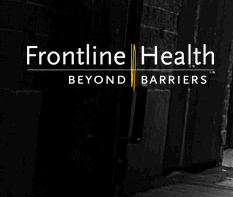Educating the next generation of frontline health practitioners in Canada
Where will the doctors and nurses come from who will be willing to work on the difficult frontlines of healthcare in Canada?
Training physicians for rural practice in B.C.
An innovative distributed medical education program trains physicians in the communities and with the populations they will work with after graduation – in northern and rural practice, on Vancouver Island, in the Fraser Valley, in the B.C. interior and in Vancouver.
Dr. Joanna Bates, Senior Associate Dean, Education, UBC Faculty of Medicine – Vancouver, B.C.
Learn more about UBC’s distributed medical education program
Preparing students to work on Vancouver’s healthcare frontlines
An inter-professional, student-run clinic puts student volunteers to work from across healthcare disciplines that include medicine, nursing, social work and pharmacy, among others, within a frontline community in Vancouver’s downtown east side.
Andrew Thamboo, Co-chair, Community Health Initiative by University Students (CHIUS) – Vancouver, B.C.
Learn more from CHIUS’ Dr. Andrew Morgan
Learn more from CHIUS’ Dr. Peter Granger
Recruiting future nurses in their teenage years
A high-school and summer camp program encourages African Canadian students to think about careers in nursing, leading to an increase of 200% in the numbers of African Canadians enrolled in Dalhousie’s nursing program.
Dr. Josephine Etowa, Dalhousie School of Nursing – Halifax, NS
Training social workers in remote First Nations’ communities in Labrador
A social work program recruits and trains people to live and provide counseling services in the remote, northern Inuit communities of Labrador.
Zita White, Program Coordinator, Labrador Bachelor of Social Work Program – Goose Bay, Labrador, NL
Memorial’s Family Medicine program helps to lower the infant mortality rate in rural Labrador
The Northern Family Medicine program in Goose Bay, Labrador prepares doctors to practice medicine in rural and remote Labrador by immersing them in the cultures and reality of the communities who live there. The program has helped lower the infant mortality rate from 16.1 per thousand to 4.5 per thousand, lower than the Canadian national average.
Dr. Michael Jong, Associate Professor, NorFam, Memorial University – Happy Valley, Labrador, NL
Learn more about The Northern Family Medicine Program
AZ9047

